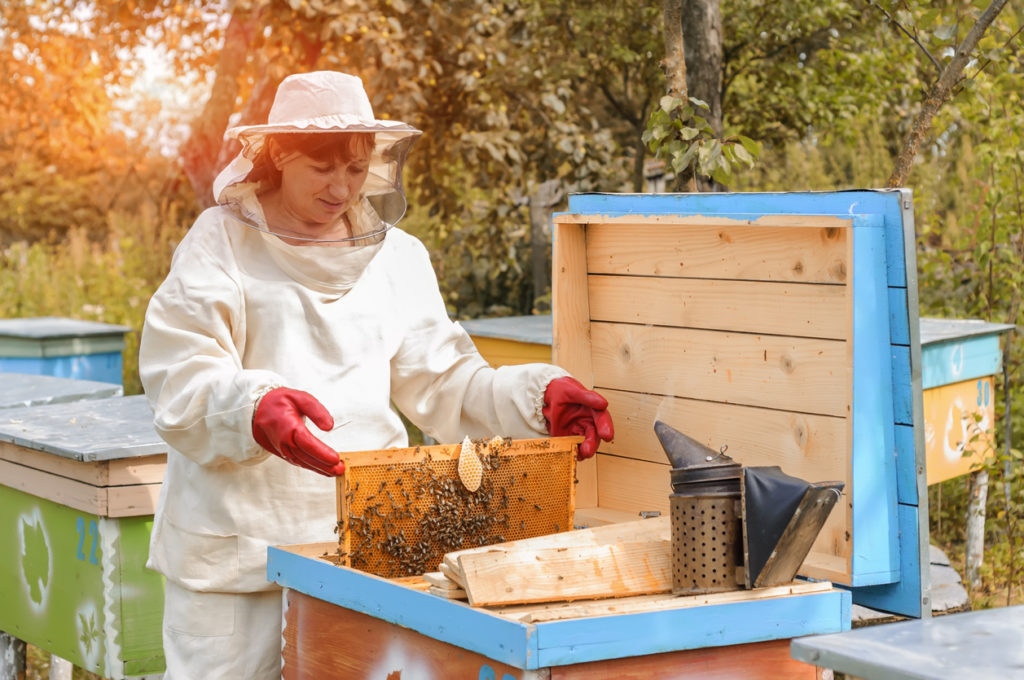
Honey bee colonies are fundamental for a healthy environment and agriculture. Bees are responsible for the pollination of plants while beekeeping plays an important role in rural development. Some practice beekeeping as a hobby, but many have turned their hobby into a business. Since eating and drinking and honey is good for your health and the environment, there is no surprise the business of beekeeping is flourishing.
Beekeeping around the world
The UK is home to over 250 species of bees, but the past 50 years have seen a decline of wild and honey bees. This trend can be noticed all around the world. This means we need to act now and protect our bees if we want agriculture to prosper and life on Earth as we know it to continue.
70 of the 100 crop species that assure 90% of the food on our planet are pollinated by bees. Bees add approximately £600 million per year to the value of UK crops, and this is not a number one can ignore. Fortunately, the business of beekeeping is growing. The National Bee Unit’s BeeBase database has registered over 29,000 beekeepers managing 126,000 colonies, a significantly bigger number than back in 2008 when there were only 15,000 beekeepers in the UK.
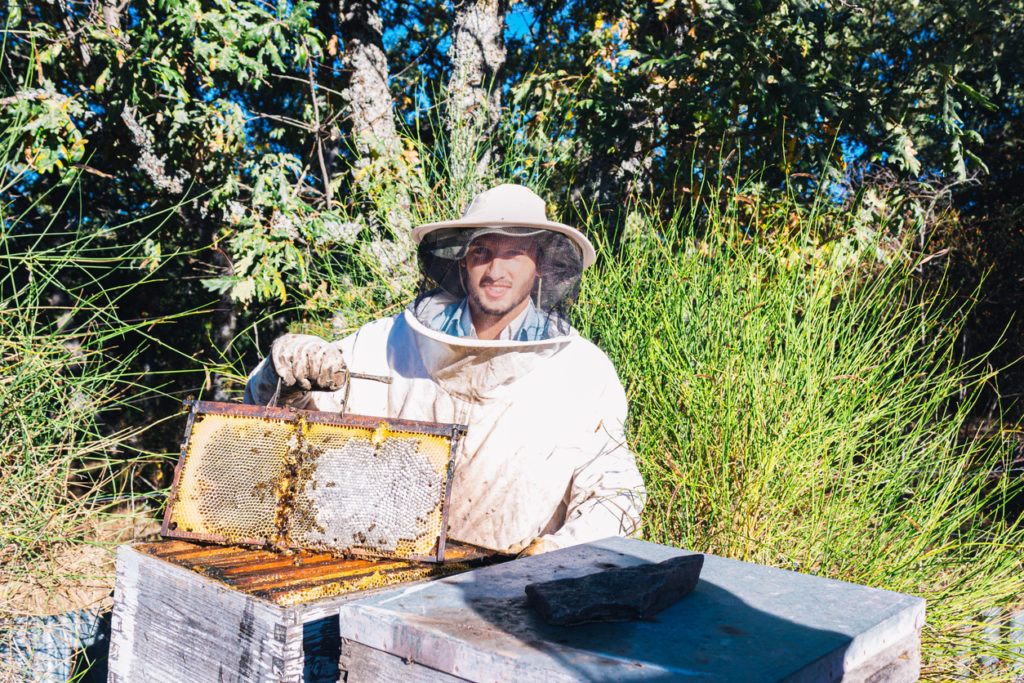
Beekeeping is on an ascendant trend in the US too. There were around 3.22 million honey bee colonies in the United States in 2012, and currently, about 120,000 beekeepers in the US manage five or more colonies each.
If we turn our attention to the EU, we will see that beekeeping is a common practice. The EU is the second most important honey producer in the world, after China. Most of the beekeeping activity takes place in Southern Europe, in countries like Romania, Spain, Hungary, and Germany, where the weather allows for a profitable beekeeping business.
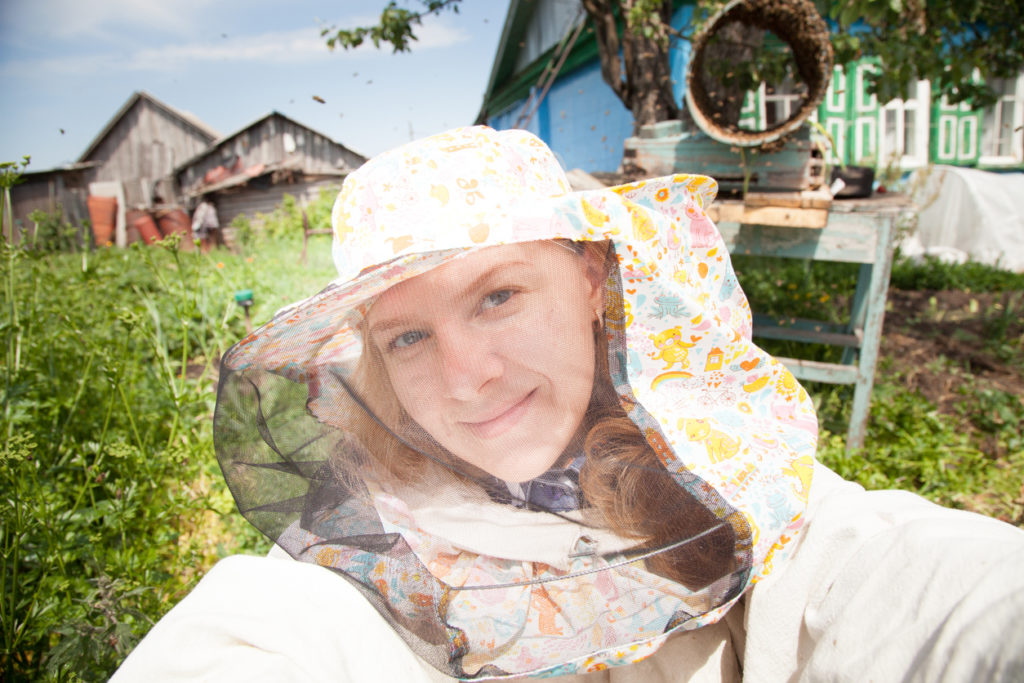
Beekeeping as a home-based business
Beekeeping can be a great way to increase your income while doing your part to protect the environment. You don’t need a lot of space for beekeeping, which makes it a great home-based business. Moreover, countries from the EU benefit from access to national apiculture programs. The EU assists beekeepers with funds for technical support, combating beehive diseases, restocking of hives, and market monitoring.
Beekeeping might not be a difficult business to start but it requires year-round monitoring of the hive and bee health. If they have access to food and water, bees can thrive regardless of the season. As soon as the honey production period comes to an end, bees enter a dormant period that will last till the following spring. While they may be able to live on pollen and stored honey, they also need proper nutrition and protection, especially if their hives have to face cold climates.
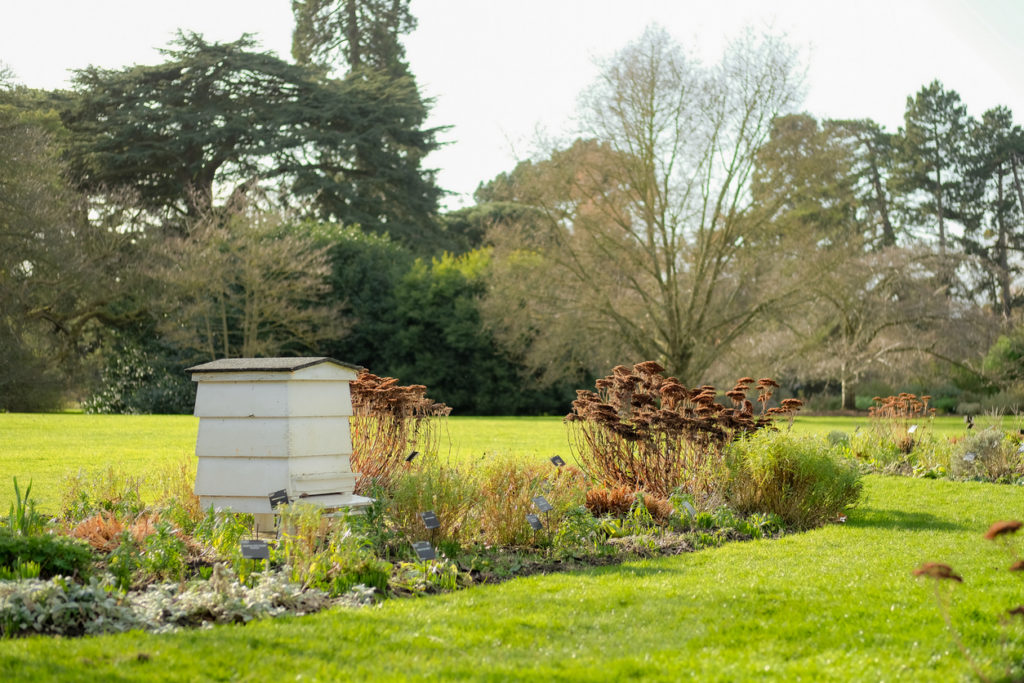
A successful beekeeping business will probably become profitable within two years, but it usually takes a start-up beekeeping business about 5 years to turn a profit. On average, one beehive yields 27 pounds of honey yearly. However, the first year may be quite disappointing because the bees need to take care of themselves first and stock up for the winter to come. A hive needs about 68 kg of honey to survive and 23 kg of pollen for the young bees.
Starting from the second year, a beekeeper can expect to harvest around 14 kg to 18 kg of honey, slightly more in a good year. Moreover, once they get more experienced, they can also sell services like pollination for somewhere between $40 and $150 per service.
The average honey yield in the UK in 2018 was around 31 lb per hive (this is the yield to be expected in a good year). If we set an average honey yield at 25 lb per hive, this would result in a total of 100 lb of honey per year. In the UK, honey sells at around £5.50 per lb which means that a successful beekeeper can expect to make an income of £550 per year. However, beekeeping doesn’t limit itself to selling honey. You can also sell beeswax and pollen that will add to your income.
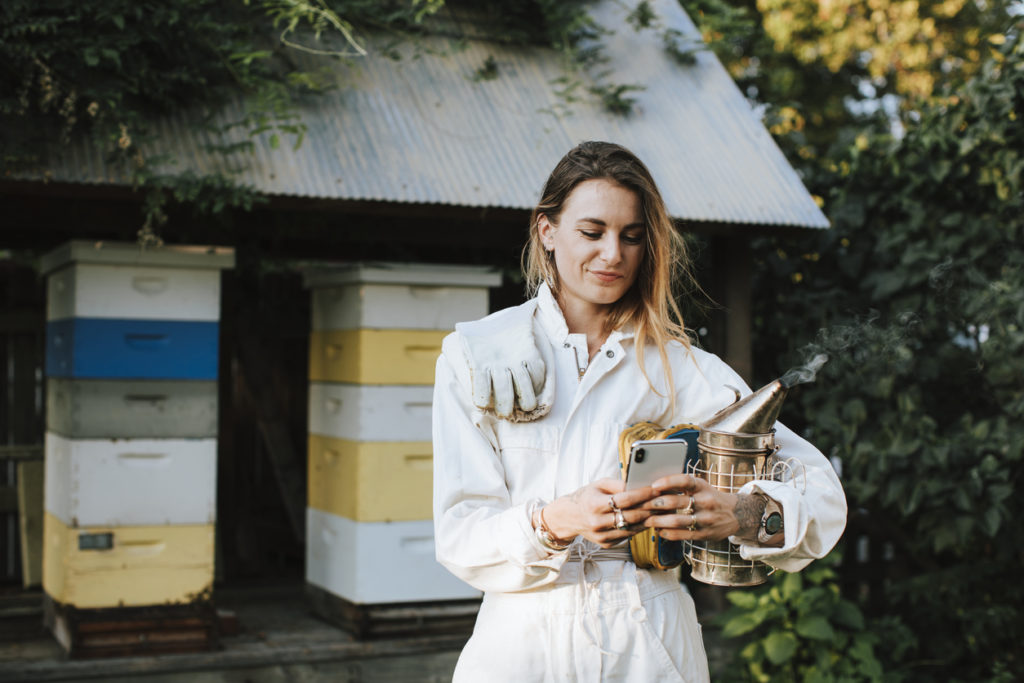
How to start your beekeeping business?
If you want to start your beekeeping business, you first need to acquire the necessary knowledge. Do your research and get in touch with experienced beekeepers. The second thing you need to do is obtain the required approvals for setting up your hives. After discussing the legal and fiscal aspects with an accountant and drafting your business plan, do some research on the local bees, the types of honey they produce, and the pests that may affect them along the way.
The total costs for setting up a beekeeping business will be around £400 per hive, while the annual maintenance costs will take you up to approximately £30, treatment, sugar for winter feed, and jars and labels included. The most expensive part of setting up a beekeeping business is buying the proper equipment.
The minimum number of hives you need to start your business is two. This way, if one hive fails, you can always continue with the other one. Buy the number of hives you need and invest in a vehicle that will allow you to move bees and hauling equipment from one location to another. You will also need queen excluders, fume boards, bee smokers, entrance reducers, robbing screens, and feeders.
Make sure you buy adequate protective equipment, like a face veil and darker-colored hat, as well as white coveralls to protect your clothes and prevent sting, and elbow-length gloves. Now it’s time to buy your initial bee colony or a starter package of bees that must include the queen bee and other bees to start your colony. Set a marketing plan and you’re good to go!





